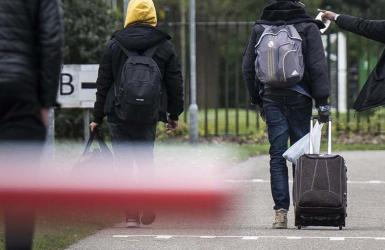The purpose of this scheme is to stimulate the knowledge economy by attracting and retaining highly skilled workers. In 2023, the scheme was used almost 13 thousand times. Other admission schemes for highly skilled migrants are the European Blue Card and schemes for scientific researchers, staff who work at a foreign branch of an international company (ICT Directive) and self-employed entrepreneurs, among others.
Recognised sponsors
A highly skilled migrant who comes to the Netherlands under the national highly skilled migrant scheme does not apply for residency independently. The future employer does this for the highly skilled migrant. Only companies recognised by the IND can submit such an application. The IND calls these companies ‘recognised sponsors’. A recognised sponsor has access to an accelerated application process for highly skilled migrants. However, the company also has legal obligations: a duty to keep records, a duty to provide information and a duty of care.
A company can apply to the IND to become a recognised sponsor. The IND will then assess the reliability, continuity and the financial health of the company. If those requirements are met, the IND will register the company as a recognised sponsor. All recognised sponsors are recorded in a public register that is available on the website of the IND. This register contains around 10 thousand recognised sponsors.
Application for a highly skilled migrant
A recognised sponsor has to apply for only one document for work and residence in the Netherlands. The IND usually processes applications for highly skilled migrants within a couple of weeks. The IND checks whether the salary criterion is met, among other things. The minimum salary for a highly skilled migrant under this scheme is around 5 thousand euros, unless they come under the reduced salary criterion, or are aged below 30. This salary must be in conformity with the market, which means that the same is earned as the average for a comparable job. To assess this, the IND can request a recommendation from the Employee Insurance Agency (in Dutch: Uitvoeringsinstituut Werknemersverzekeringen or UWV).
In addition, the highly skilled migrant must sign a statement that they did not commit any crimes and there must be an employment contract. The recognised sponsor must make sure that all documents are complete and the IND will check the application.
Giving an explanation to the recognised sponsor
The IND has different ways to provide information to recognised sponsors about their role. This includes information about the different processes, the legislation and what is expected from recognised sponsors. The purpose is for all recognised sponsors to comply with the requirements. This is especially important for companies who are recognised sponsors for the first time. For them, the IND organises (online) information meetings and theme sessions, and sends newsletters, among other things. We know from experience that most recognised sponsors comply with the requirements of the scheme. After all, they have an interest in bringing highly skilled migrants to the Netherlands.
Enforcement when necessary
The IND checks retroactively whether the recognised sponsor still meets the requirements for recognition and whether it complies with the legal obligations. In recent years, the IND has made more and more intensive efforts for monitoring and retroactive enforcement. It is not feasible to investigate all recognised sponsors annually. Therefore, the IND carries out random checks. Attention is paid to signs emerging from desk investigation, reports and information from company visits. For this purpose, the company regularly works together with the Netherlands Labour Authority (in Dutch: Nederlandse Arbeidsinspectie or NLA).
If a recognised sponsor does not comply with the requirements, the IND can issue a written warning, possibly followed by an administrative fine. In addition, it is possible to suspend a company or withdraw recognised sponsorship. Suspension or withdrawal of recognition can affect the assessment of new applications for residence of highly skilled migrants who wish to work for the company in question. For example, processing will be put on hold or highly skilled migrants’ residence permits will be withdrawn.
Employment agencies and payroll companies
Recognised sponsors can currently supply their highly skilled migrants to other companies via assignment or payrolling. The employment agency or payroll company is then legally the employer and takes care of all bookkeeping, but the highly skilled migrant actually works for another company in the Netherlands.
Because of this construction, the recognised sponsor has little insight into the actual activities and working conditions of the highly skilled migrant, and neither does the IND as a result. This has the attention of the IND and has also been communicated to the Ministry of Justice and Security. Together with the Ministry of Social Affairs and Employment and in consultation with the Ministry of Economic Affairs and Climate Policy, it is being investigated whether supplementary legislation is necessary for supplying agencies that act as recognised sponsors. In case of a policy change or amendment of regulations, the House of Representatives will be informed.



